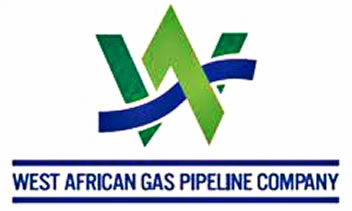The West Africa Gas Pipeline Company Limited (WAPCo) initiated a month-long maintenance operation on its crucial gas pipeline network spanning from Lagos, Nigeria, to Ghana, Togo, and Benin. This critical infrastructure delivers natural gas that fuels power generation across these West African nations. WAPCo proactively engaged with the governments of the recipient countries, assuring them that the planned maintenance would not disrupt their power supply. Alternative fuel arrangements were made by each country to ensure continued electricity generation during the pipeline’s temporary shutdown. This collaborative approach mitigated the risk of energy blackouts and underscored the importance of regional cooperation in energy security.
The comprehensive maintenance project encompasses several crucial tasks, including a process known as “pigging,” where devices are sent through the pipeline to clean and inspect its interior. This ensures the pipeline’s integrity and efficient operation. In addition to pigging, the 569-kilometer offshore pipeline stretching from Ajido, Lagos State, to Takoradi in Ghana’s Western Region underwent a thorough in-line inspection. This inspection assesses the pipeline’s structural condition and identifies any potential issues. Furthermore, vital subsea valves located in Tema, Ghana, and Cotonou, Benin, were replaced to enhance operational safety and prevent potential leaks or disruptions.
While the maintenance necessitated a temporary halt to certain gas transportation services, including the reverse flow from Ghana’s Western Region to Tema and gas supply to Cotonou, Lomé, and Tema, the flow of gas from Nigeria to Takoradi in Ghana continued. This strategic decision allowed for the pipeline cleaning and inspection activities to proceed smoothly while minimizing disruption to Ghana’s energy supply. The maintenance process began with pilot testing using a foam pig, followed by the primary maintenance focusing on the pipeline’s internal condition through onshore pigging and an assessment of its external components through underwater inspection.
The complexity of the maintenance operation required the isolation of specific sections of the pipeline using strategically placed valves. These valves, positioned at the pipeline’s junctions leading to the three recipient countries, enabled controlled cleaning and inspection. During previous maintenance attempts to clean the lateral pipelines connecting to these cities, it was discovered that valves in Cotonou and Tema were not entirely gas-tight. This maintenance window provided the opportune time to replace these critical valves, ensuring the pipeline’s overall integrity. The replacement of these valves allows for more efficient and reliable gas flow, contributing significantly to long-term operational safety and preventing potential disruptions in the future.
The successful execution of the maintenance project hinged on the cooperation of the partner countries, particularly in ensuring timely payment for gas supplies. WAPCo emphasized the importance of consistent payments to facilitate ongoing maintenance and prevent future disruptions. The temporary shutdown served as a reminder of the potential consequences of pipeline failure and the importance of proactive maintenance. The governments of the recipient countries acknowledged the critical role of safety and the necessity of carrying out the maintenance activities, despite the temporary disruption. This shared understanding of the long-term benefits of the project underscored the importance of regional collaboration in maintaining critical energy infrastructure.
In conclusion, WAPCo’s proactive maintenance initiative demonstrates a commitment to ensuring the long-term reliability and safety of the West Africa Gas Pipeline. The collaborative efforts between WAPCo and the governments of Ghana, Togo, and Benin, coupled with the strategic planning and execution of the maintenance activities, minimized disruption to the energy supply of these nations. The replacement of critical subsea valves, the comprehensive cleaning and inspection of the pipeline, and the emphasis on timely payment for services all contribute to the pipeline’s continued safe and efficient operation, ensuring a stable supply of natural gas for power generation in West Africa. This project serves as a model of regional cooperation in addressing critical infrastructure needs and promoting energy security within the region.














